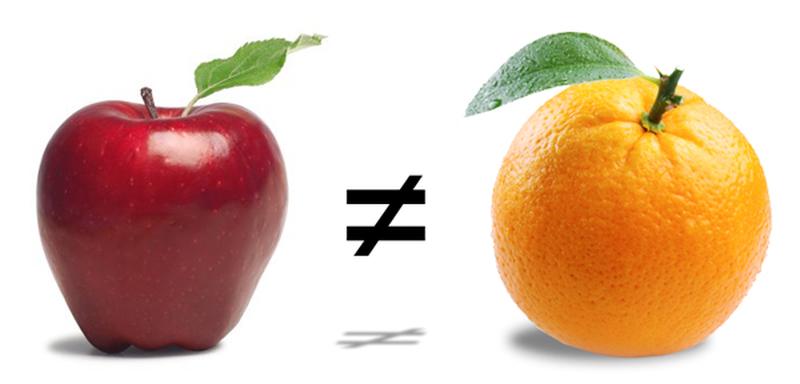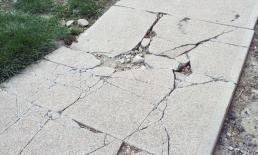
How to dissect and understand an in-ground pool estimate.
I am often told by future clients that they have several estimates for their new pool and they know they are comparing apples to apples. They typically believe they have a firm grasp on the features and the scope of work they are comparing. Unless they have some experience in the construction industry, the truth is they're usually lost. It is only after I review the quotes with them do they understand not only what is included, but more importantly they understand what is not.
See our new 'Fiberglass Pool Estimate Generator'. This app will quote out a budget range for each portion of your project.
Let's acknowledge a well know fact. Pool guys have a reputation for be shady. Kind of funny right? Also kind of scary. Let's acknowledge another truth: Pool construction, specs, features, best installation practices, and needed items are very complicated, boring, and easy to not pay attention to. Before you purchase your swimming pool, it is critical you educate yourself on the pool itself, the items that go with the pool, and what an estimate actually means. Let's go over some of the most common 'gray' areas on a pool estimate and what you should be looking out for.
-
Site Prep and Access

Who fixes this?Does your estimate make mention of site access, fence removal / re-installation, lawn protection, sidewalk protection, curb blocks, temporary fencing around the pool during construction (fencing is a MAJOR liability for you), patio rework, or vegetation protection? If the sidewalk or driveway breaks whose responsibility is it? These are all points that NEED to be addressed on the scope of work and be a part of the contract or they could easily cost you thousands of dollars.
-
Drawings and Permits
Is the pool builder going to provide engineer approved blue prints? Are they providing any drawings at all? That's a big part of obtaining a permit. Are they providing the permit? By law they must, but it doesn't mean they are. If so what type of permits? Most people don't realize there are zoning, electrical, AND building permits required for a pool. In many neighborhoods a homeowners association approval is also needed. Are there 3D drawings provided for the homeowner board?
-
Freight

Typical fiberglass
pool loadFiberglass pools have a large amount of freight and logistics associated with the project. Make sure that ALL necessary freight charges, DOT permits, and CRANE rentals are part of the contract. It's a trick that some pool guys love to play. I've heard 1st hand of installers telling the customer that ODOT re-routed a load and that it was out of their control and was going to be a change order for $1,000 or more. I have also had people tell me that their installer charged them extra for the crane as they somehow didn't know they would need one!!
-
Elevations
Make sure the elevation is clearly spelled out on the contract and plans. A shallow pool makes for a cheaper install for the builder but will break your pocket book when it comes time to finish grade or do concrete if that something you're handling. I was called in to "fix" a pool in northern Ohio that was set 14" too high. Unfortunately short of reinstalling it there was no fix. The owner had to bring his entire yard up to match. To the tune of over $8,000.
-
Soil Hauling

What do we do with all this dirt?I love this one. MOST pool estimates cheat on this. It will say either 'soil hauling by others' or 'soil hauling as needed.' Let's start with the latter. What does 'as needed' mean? 'As needed' according to whom, you or the installer? Hauling away 40 out of 100 tons of dirt doesn't work. Even if the 60 tons left could be graded out (and normally it isn't) do you know how much topsoil, sod, and seed will cost? Typically MORE than the hauling would have cost. BEWARE. On to the former 'Soil hauling by others.' This is just about as deceitful. Many pool installers slip this in and hope you don't notice it. If you do notice, they tell you that you can get a guy on Craig's list or say 'it won't be that much to get a truck and bobcat.' That's a lie too. A 30x15 pool with a 5' average depth will yield about $1,500 in trucking if the site is within a few miles. Ohio clay is heavy and can be costly to move, especially when wet.
-
Backfill

Know your gravel typesTwo problem areas here: HOW MUCH and WHAT KIND. I am amazed how many people have no idea what their pool is going to sit on for a base or what it's going to be backfilled with. Many quotes say 'premium backfill' or just gravel. Newsflash: All gravel is not equal. Most fiberglass pool installers use sand as their base and backfill. Some even think that they are doing their customers a favor because it's better than dirt! (Unbelievable! I repair pools regularly that have been backfilled with dirt??!!! It is the primary reason for fiberglass pools cracking and voids all warranties!!) The truth: Sand is nearly as bad as dirt though somehow has become an acceptable practice. Pea stone is only a little better. SO LONG AS IT'S WASHED!! Unwashed pea comes with sand mixed in and WILL settle and push on the walls and make them bow over time. #57 limestone is a great option but is very hard to pack up under seats and stairs to insure they are supported. #8 chipped / washed limestone is the only solid / stone product I will use on a fiberglass pool. The reasons are simple. It does not settle and is nearly fully compacted at rest, it locks with its self and does not shift, it allows water to penetrate and flow through without shifting and moving, and puts nearly NO lateral (sideways) pressure on the walls. This insures a settle free install and no bulging walls in the future. Is limestone more expensive? You Bet! More by about $1,200-$1,600, but money well spent to have a strait and sturdy pool. Believe me when it's raining hard in the middle of the night, you'll sleep well knowing your pool is safe.
As for HOW MUCH most pool contracts have an allowance of gravel. That can be OK but clarify if the quantity has been calculated for your job or is just a stock inclusion. I hear horror stories of installers giving their clients bills for up to 40 tons of addition gravel. What a crock. They act like they didn't know how much they were going to need and that it somehow should have been the client's responsibility to know how much the project would take!! Beware again!
-
Project Management

I don't know!Where to begin on this one? Who is actually building your pool and running the show on your project? When I build a pool I assign a PROJECT MANAGER to oversee the entire job. Start to finish, beginning to end. He is ON SITE nearly if not the entire job handling all aspects of the job. We use our own employees to handle our installations. Makes sure you know who is building your pool. There is a guy here in Columbus that doesn't even show up to do layout or get the job started. He has the pool supplier deliver the pool, and then sends a subcontract crew to install it. The client usually has to help determine directly with the install crew WHERE the pool goes and how high it should be? Here's my favorite part! When the gravel trucks arrive they ask for payment. (Surprise Surprise...he has no credit with his suppliers) He then asks the client to pay the gravel guys directly and will credit it back to them at the end!!! The first time I heard this I thought it was a single job. NOPE, it's how he does business. He has no cash flow for daily operations. Some may think that's no big deal for the right price. WRONG! By you paying for the gravel and or trucking, you have assumed the liability that goes along with that truck entering your property. Trucks assume no liability once they leave the public road. If your sidewalk or driveway cracks OR heaven forbid someone is hurt or worse. That's on YOU! Liability aside do you want to project manage and cash flow your own pool project? Isn't that what you're supposed to be paying some else for?
-
Pool Style and Features
This may seem like a no brainer but very few of the pool proposals I see even mention the size of the pool, color of the pool, or the warranty of the pool. Make sure you know exactly what you're getting and what the warranties are that go with them. Check out some example warranties you might also be surprised at what isn't included in those too.
-
Plumbing Equipment and Material

Which one is best?Though this is definitely the boring part, it's really important to understand the pros and cons as well as differences in equipment, piping, and fittings. It's also important to know what your pool is going to have installed on it. Like anything, you get what you pay for. Some things to keep in mind: Bigger isn't better. Did you know over sizing a pool pump is FAR worse than under sizing it? You'll spend a lot more on electricity and will wear out an oversized pump very quickly. Filters – Take some time to understand the differences between filters. Sand, DE, and cartridges filters are very different in their initial and ownership costs. Also know what SIZE you need. Don't trust the model number to mean anything. There is not always a correlation between model numbers and capacity of the filter. Undersized filters means once again more electricity and in this case A LOT more filter cleaning. Lastly make sure you understand the function of your system. The functionality makes or breaks the maintenance of your pool. If you have to cut and glue on your system to open and close it you will not be a happy camper. The things you need to look for are unions on all components (x2) unions or unionized valves on all lines to the pool, all lines to the pool are home run (or designated), and the system is laid out in an efficient manor with as few fittings as possible and in a fashion that makes it easy to get to.
When it comes to the brand of equipment used you're basically looking at Ford vs. Chevy. Most installers are loyal to one particular brand. Does Jandy make the best valves, pumps, filters, heaters, and waterfalls or does Hayward? I argue neither. We use Pentair diverter valves and pumps, Sta-Rite filters, Aquacal heat pumps and salt systems, and Colorfalls water shears / fountains. We use the products that have the best combination of many factors, some of which are: reliability, energy efficiency, ease of use, and port placements. By the way – Hayward and Pentair kick installers $200-$400 per pool if they keep their respective brand exclusive on a particular pool.
-
Hydraulic Plan
Like it or not this is boring too but important. Make sure you know what lines will be running to and from the pool. The fewer pipes you have the more head (or resistance) you will have on the pump and the more electricity it will cost you to run the system. Not having the proper returns and suctions in the right places will also affect how efficient the pool turns over. What does this mean to you? A dirtier pool, an unevenly heated pool, and areas of the pool that may develop algae you can ever seem to get rid of. The layout of the pools returns and suctions as well as the means of plumbing those lines to the equipment are paramount in having a low maintenance and efficient pool.
-
Electric

How is your equipment
going to be powered?This is probably the BIGGEST hidden cost a duped pool owner will have to deal with. When a pool installer says that the electric is not included, you better get a firm estimate before you sign with him. Most pool wirings will cost $2,500-$3,000. In some rare occasions when the equipment is right next to the electric panel it may be around $1,500 but that's not the norm. Here's why. Any service that is supplying swimming pool equipment must have an insulated ground. This means you can't just run a 12-3 romex through the basement and hook up a switch to the motor. Braided wire must be run with an insulated ground wire which must be put into a ridged conduit through the basement and to the disconnect box outside. The light must follow the same rules. With this in mind it quickly becomes more cost effective to run ONE pipe and ONE circuit to a new designated pool circuit breaker control panel. This is how we install ALL of our pools. Additionally when most Craig's list electricians and pickup truck pool men wire a pool, it's typically 110v not 220v. What's that mean to you? Some savings on the install, but about $70 more per month in electricity. Hardly a bargain.
In addition to the installation of the electric to the filtration and lighting components, is the bonding. Bonding is a complicated thing around a pool. Bonding is the interconnecting of all metal objects around the pool. It also involves creating an equipotential grid around the pool (20" from water) and must include an electrical bond to the water itself.
-
Pool Set and Water

Trucking water in is the way to go!Would you believe that most pool estimate DO NOT include water? Many pool installers will fill it with your hose over several days. That could easily mean an $800-$1,000 water bill for you, a much slower install process, and frankly not as good of an install. When my teams install a fiberglass pool, we are filling the pool and backfilling the pool at the same time. This ensures that there is no stress from the stone pushing in on the shell or the water pushing out on an unsupported wall. We also use a process called washing in that involves the use of high volume water rushing backfill material around all of the nooks and crannies of the pools shell. These practices cannot be employed if you are filling the pool with a garden hose.
-
Covers
I can't stand hearing about the 'free cover.' Nothing's ever free. Be sure to ask what kind of cover your getting. If it's a solar cover what kind of warranty is it? They come in 3, 5, and 7 year warranty version. The difference is the thickness and range from $139 to $605. The solar reels are no different they can range from $180 to $820. As for winter covers a cheap stock square cover can be purchased for as low as $400 while a quality custom cover can run upwards of $3,000.
-
Heaters

Comparing amount of heat
per dollar, heat pumps
are unbeatableYou can spend just about whatever you want on a heater and you will always get what you pay for. There are three basic types of heaters. Electric, gas/propane, and heat pumps. In my opinion anyone that sells an electric heater is a crook. They may be the cheapest to sell ($1,100-$1,500), cost the same to install as a heat pump BUT will cost you as much as $2,000 per year to operate. Gas is a second in initial cost to install ranging from $1,800-$2,500 but will cost you around $1,500 per year to run. Lastly you have heat pumps. A heat pump heats the water similar to how an air conditioner cools you home. It moves the heat energy verses creating it. Your AC in your home moves the heat from the house to outside, and pool heat pump moves the heat from outside to the pool. This moving of heat is much more energy efficient than generating heat which can mean a warmer and more used pool without the worry of energy costs. Most pools can have a heat pump installed for $3,200 – $3,800. About 50% more than gas yes BUT will cost an estimated $300–$400 per year to run in the Ohio area. For most of our customers that means they see a return on their heat pump investment over gas as soon as the first year and you could consider it free compared to gas in about four years. Another side benefit to a heat pump, most come with a titanium heat exchanger which is warranted for LIFE and salt system friendly unlike the copper exchangers found in most gas heaters.
As you can see the one page estimates that many pool companies provide are a bit less detailed than perhaps they should be. Most of us would never consider remodeling a kitchen with a one page boiler plate style contract. Why are we content with so little detail when we purchase a swimming pool? Frankly fixing problems in a kitchen or remodel project are significantly less costly than fixing a pool installation mistake.
Pool Article Categories:
Copyright Luxury Pools and Living 2005-2025
Cookie Policy | Privacy Policy